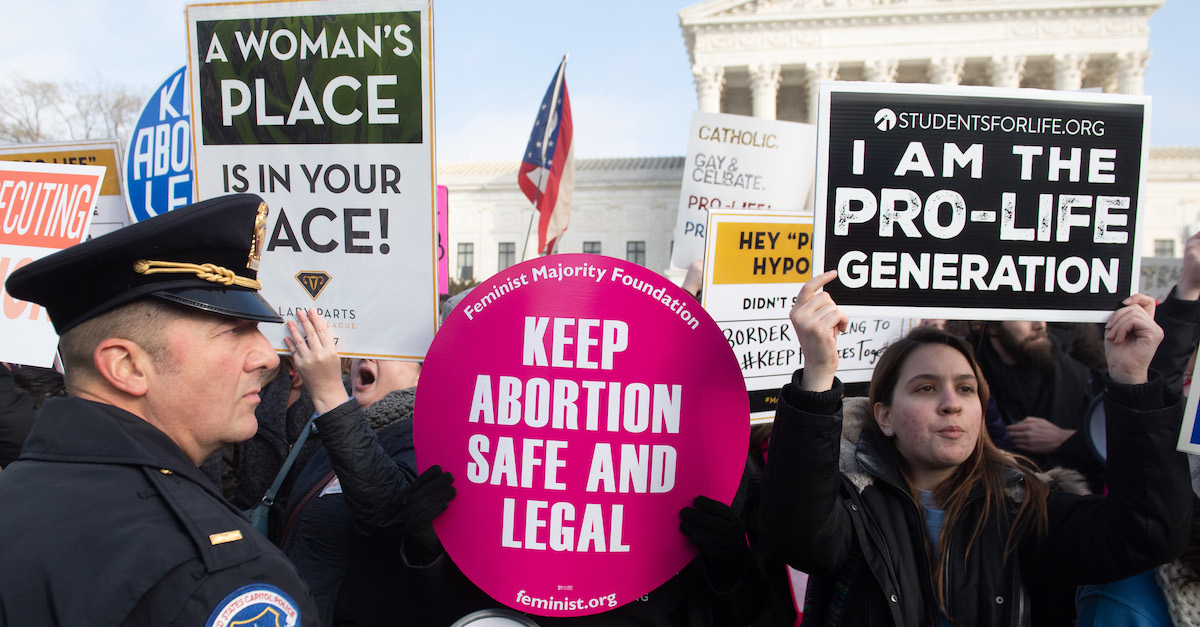
The Supreme Court gave Kentucky’s attorney general the green light on Monday to try to defend the state’s near-ban on a common abortion procedure, a law struck down as unconstitutional two years ago by a federal court in a decision affirmed on appeal.
In 2018, Kentucky passed a law that effectively banned the standard second-trimester abortion method, known as dilation and evacuation. EMW Women’s Surgical Center and two of its obstetrician-gynecologists, Dr. Ashlee Bergin and Dr. Tanya Franklin, called the law an unconstitutional burden on the right to an abortion, in violation of the Fourteenth Amendment.
Following a five-day bench trial, a lower court issued a permanent injunction in the clinic and doctors’ favor.
The case headed toward an intermediate appeal at the time Kentuckians went to the ballot, in an election pitting then-Attorney General Andrew Beshear against Daniel Cameron, who used Beshear’s self-professed pro-choice views against him. Cameron won the contest, and he reversed his predecessor’s commitment not to try to enforce abortion laws found by a court to be unconstitutional.
After the Secretary of Kentucky’s Cabinet for Health and Family Services lost an appeal by a 2-1 margin, Cameron tried and failed twice to seek en banc review from the Sixth Circuit. Five days after the circuit denied Cameron’s motion to interview, the Supreme Court decided June Medical, in which Chief Justice John Roberts joined the court’s left flank in ruling against a Louisiana law requiring abortion clinic doctors to have admitting privileges at a nearby hospital.
Three days after Justice Amy Coney Barrett’s swearing in created a 6-3 Republican-appointed majority on the Supreme Court, Cameron filed a petition for certiorari, which the high court partially granted on Monday.
The Supreme Court limited its review to whether a state attorney general should be permitted to intervene after a federal court of appeals invalidates a state statute when no other state actor will defend the law. The high court declined to decide whether to vacate the lower court rulings.
Backing the the clinic and the doctors, the American Civil Liberties Union argued that the case was not deserving of Supreme Court review.
“In short, there is no circuit split, nor any important federal question, for this court to resolve. The legal standard for evaluating motions to intervene is well-established and uncontested,” the ACLU’s attorney Andrew Beck wrote in a 32-page brief on Feb. 5. “By its nature, the inquiry into whether a motion to intervene is timely is fact-specific.”
Beck cast this the battle as one over whether Cameron can “jump in at the last minute in an effort to revive an unconstitutional law.”
“The Attorney General has shown that he will stop at nothing to prevent people from making their own decisions about a pregnancy,” Beck, senior staff attorney at the ACLU Reproductive Freedom Project, said in a statement. “Major medical associations have condemned harmful restrictions like the one at issue here, and every court to consider a law like this has blocked it. We will continue to work to make sure this ban never takes effect.”
Cameron’s office did not immediately respond to an email requesting comment.
Read the Supreme Court cert orders below:
[Image via SAUL LOEB/AFP/Getty Images]
Have a tip we should know? [email protected]